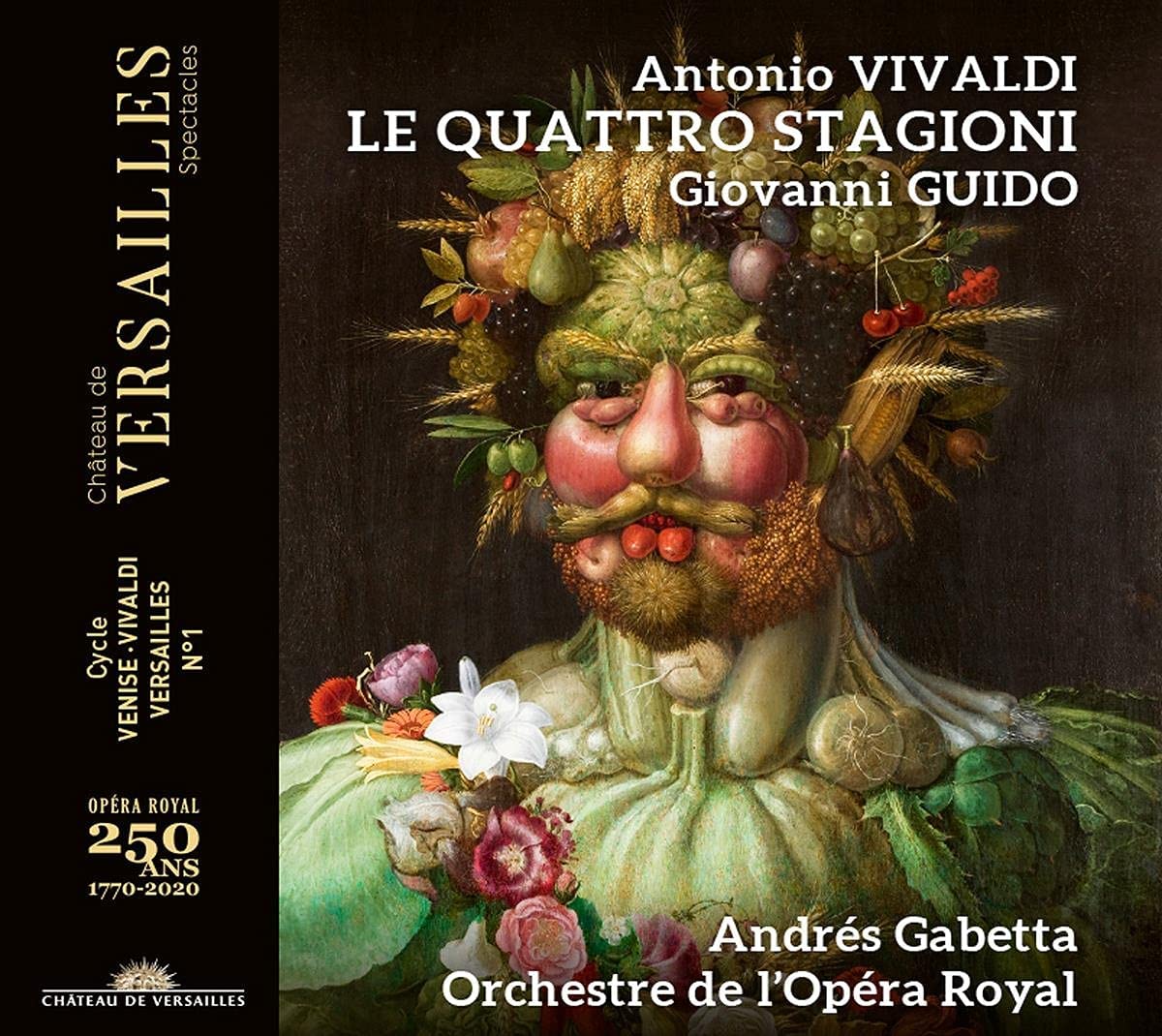Andrés Gabetta, Orchestre de l’Opéra Royal
93:28 (2 CDs in a card box with DVD 70′)
Château de Versailles Spectacles CVS042
Click HERE to buy this on amazon.co.uk
[These sponsored links help the site remain alive and FREE!]
So, to the list of ‘seasonal’ composers we can now add Giovanni Guido (1675-1729), who, like Lully, was an Italian who ‘made good’ in France. He was the star violinist in the service of Philippe d’Orléans. His Scherzi amonici sopra le Quattro stagioni dell’anno have no known connection with Vivaldi’s famous concertos though, like them, are based on anonymous poems to which the music responds in some detail: l’Este’s 24 lines elicit a 13-movement divertissement, seven of them less than a minute in duration. Guido’s scoring is for trois dessus and continuo, probably a string ensemble, though he does suggest the addition of woodwind to reinforce the strings in places.
This licence has stimulated this ensemble to prepare an elaborate arrangement involving a broad palette of instrumental colours ranging from hurdy-gurdy to high-pitched recorders plus a few sound effects. In 2021, this is very well done and good fun. Whether or not anything like it would have happened in 1721 is a different matter.
Those same sound effects also appear from time to time in Vivaldi’s famous sequence. This is played with great technical brilliance though I question the very flexible approach to tempo within movements. These performances also offer an opportunity to hear the music ‘as it was heard in Dresden’ with additional parts for woodwind and horns in some of the tutti sections.
As well as the CDs devoted to Vivaldi and Guido respectively the package also includes a DVD filmed in the Hall of Mirrors. This is simply a recording of the music (no audience) with no index points of any kind or ‘extras’. For me, it added little to the CDs.
The booklet (in French, English and German) is informative but falls down in its grouping of the essays by subject rather than language. Having read the French introduction on p7, one then has to turn past its English and German translations to pp12/13 and then to p18 for further enlightenment. But full marks for including parallel translation of the poems which inspired the music.
Sadly, I have yet again to beseech Versailles to get the English texts checked by someone with a better grasp of the language’s idioms.
David Hansell
